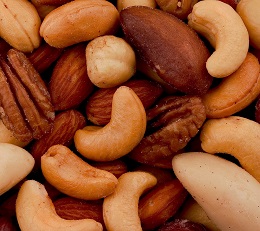22 June 2018
 Children aged 8-13 years are being sought for a University of South Australia study to test whether nuts can improve their cognitive ability.
Children aged 8-13 years are being sought for a University of South Australia study to test whether nuts can improve their cognitive ability.
Nutrient-rich tree nuts – including almonds, Brazil nuts, cashews, chestnuts, hazelnuts, macadamias, pecans, pine nuts, pistachios and walnuts – are already recognised for their health benefits, but there is mounting evidence that they can also help perception, thinking and learning, UniSA researchers say.
The UniSA study follows on the heels of research that shows tree nuts can improve vascular health and cognitive function in adults, but there is scant research looking at the health benefits for children.
Lead researcher Associate Professor Alison Coates wants to recruit healthy boys and girls aged 8-13 years who are not allergic to nuts and have no sleep or behavioural disorders.
“We will be asking the children to eat 30g of almonds five days a week for eight weeks – that’s about 23 almonds each day,” Assoc Prof Coates says.
The researchers will use brain game tests to compare the children’s cognitive ability with a control group of other children on a nut-free diet for eight weeks.
Less than 10 per cent of Australian children consume nuts regularly, Assoc Prof Coates says, despite demonstrated health benefits in adults.
“Multiple US surveys involving 10,000 adults have already demonstrated a link between regular nut consumption and improved cognitive function, regardless of age, gender, race, education, BMI, smoking, alcohol consumption and physical activity.
“Other European studies looking at the benefits of a Mediterranean diet – including mixed nuts – showed better cognitive ability and a lower risk of depression compared with participants on a low-fat diet,” Assoc Prof Coates says.
The UniSA nutritionist was recently commissioned by the Australian organisation Nuts for Life to create a fact sheet about nuts and brain health, based on evidence-based research.
Her current study is funded by the Almond Board of Australia.
For more details and o take part in the study please email alison.coates@unisa.edu.au
Media contact: Candy Gibson mobile 0434 605 142 email mailto:candy.gibson@unisa.edu.au


